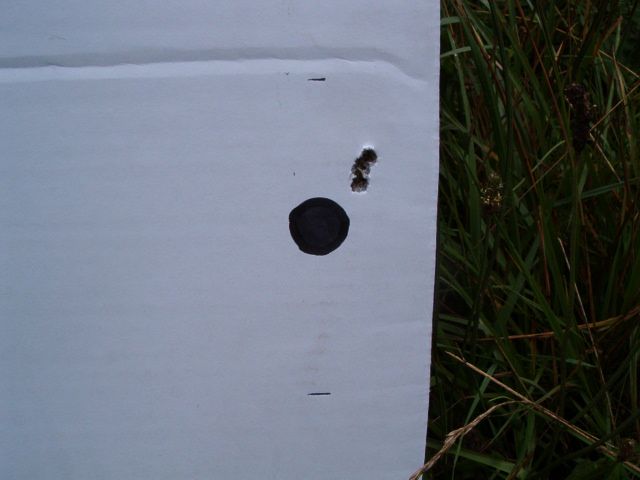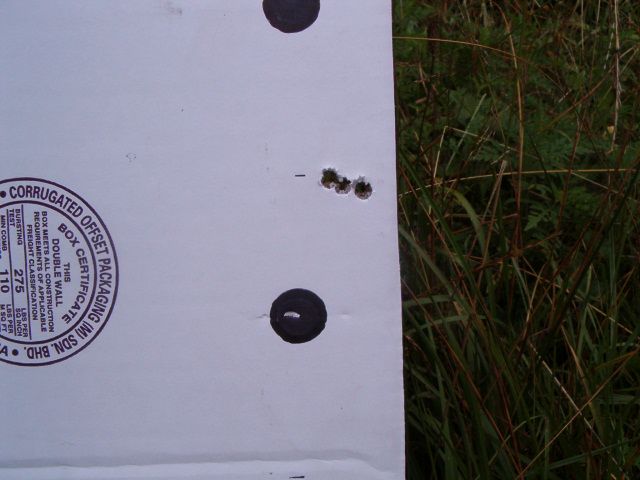Rifle is together & fire formed 50 cases [257 Roberts Improved]. Used a Sierra 75 grain HP, 50 grains of Data 85, & a Wolf Large Rifle primer.
Fired once, cleaned.
Fired once, cleaned.
Fired once, cleaned.
Fired twice, cleaned.
Fired twice, cleaned.
Fired twice, cleaned.
Fired 3 times, cleaned.
Fired 3 times, cleaned.
Fired 3 times, cleaned.
Fired 3 times, cleaned.
Fired 6 times, cleaned.
Fired 6 times, cleaned.
Fired 6 times, cleaned.
Fired 6 times, cleaned.
Fired 5 times, cleaned.
The 6 shots were fired in groups of 3 shots, cool & 3 more.
Cleaning with Butch's Bore Shine. I used wet patch after wet patch till all powder fouling was gone. Then one more went patch & allowed the rile to sit in the cleaning vice for 5 min.[appox] Then a clean patch followed by two brush strokes with the same solvent. Allow another 5 min. & dry patched till I got a clean patch. Can't believe how many patches I went through.
Is this any way to break in a barrel? I have no idea. I've read several different ways & came to the conclusion this is good as any if in fact "breaking in" is even needed. I'm just glad it's over. Spent over 8 hours or better at the range.................Creeker
Fired once, cleaned.
Fired once, cleaned.
Fired once, cleaned.
Fired twice, cleaned.
Fired twice, cleaned.
Fired twice, cleaned.
Fired 3 times, cleaned.
Fired 3 times, cleaned.
Fired 3 times, cleaned.
Fired 3 times, cleaned.
Fired 6 times, cleaned.
Fired 6 times, cleaned.
Fired 6 times, cleaned.
Fired 6 times, cleaned.
Fired 5 times, cleaned.
The 6 shots were fired in groups of 3 shots, cool & 3 more.
Cleaning with Butch's Bore Shine. I used wet patch after wet patch till all powder fouling was gone. Then one more went patch & allowed the rile to sit in the cleaning vice for 5 min.[appox] Then a clean patch followed by two brush strokes with the same solvent. Allow another 5 min. & dry patched till I got a clean patch. Can't believe how many patches I went through.
Is this any way to break in a barrel? I have no idea. I've read several different ways & came to the conclusion this is good as any if in fact "breaking in" is even needed. I'm just glad it's over. Spent over 8 hours or better at the range.................Creeker




